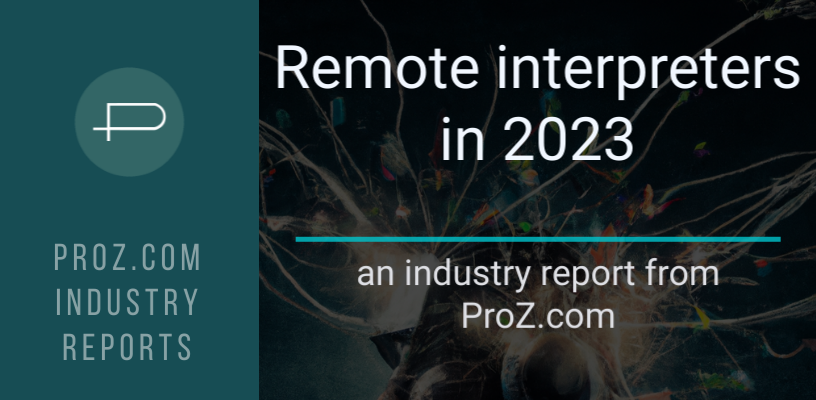AI and other tech
Artificial intelligence has been a big subject of discussion in recent years, and that has seemed to have accelerated , so, sorry if you are tired of hearing about it at this point. But at least in the language services industry, we seem to have moved beyond the point where the discussion was about where and how AI would be implemented to concrete examples of it being used to provide better and faster services and results, outside of the more narrow use of machine translation for translators, that is.
Interpreters are finding creative ways of leveraging AI and other advances in tech to their benefit. Some of these uses are in the preparation or training process. For example, a common use of ChatGPT and other AI chatbots is to generate texts which can then be turned into speeches using text-to-voice software or functions for general practice, vocabulary acquisition, and preparation for a job.
As things become more transinterpretified, interpreters are not limiting themselves to tools which are interpreter-specific. CAT tools and other solutions which have traditionally been considered “translator tools” are being used to make practice and preparation for jobs more efficient, and they are even used on the spot during jobs to increase the interpreter’s reaction to changing conditions or to make up for gaps in the preparation the client was able or thought to provide.
Sometimes you’re as prepared as can be, but the client has not passed along all the relevant information, or the situation changes near to or during the job. Being mentally quick on your feet is part of being an interpreter, but interpreters are using new tools to make them even quicker to react and adapt to the situation. Tools such as machine translation are useful for prep, but can also be used in the moment to get out of tight spots.
With automatic closed captioning and interpreting software, some have seen a decrease in some types of jobs as clients experiment with this. But just as often, you have a smart interpreter using those same solutions on their end to make their job easier and provide better results.
Being knowledgeable and proficient in new technologies will help you perform better, but it will also put you in a position where you can more professionally respond with ease when your clients are experimenting with the same technologies. For example, responding to a client who is following along on a human-provided interpretation with automated interpreting software and objects when the terms or turns of phrase being provided do not match. Very often, the language professional is more versed in the tool than the client, and being able to effectively share that knowledge can benefit all parties involved.
Over a thousand interpreters were surveyed earlier this year on some of the information we are looking at here, and with regards to technologies they are leveraging, they were asked to make a list of software, hardware, or other solutions they consider “must haves” for the modern interpreter. The list generated from all of this input is no doubt incomplete, but if you are looking for ideas on how to improve your work, you may find interesting solutions to research and incorporate. The current list is displayed in this ProZ.com blog post, and will be updated as more people contribute to improving it with their recommendations.
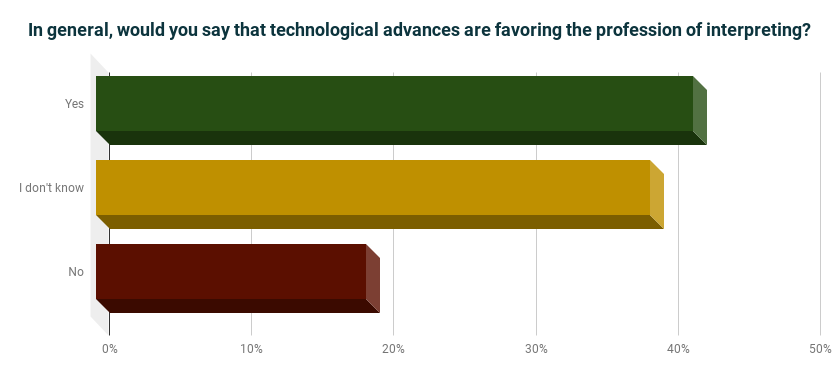
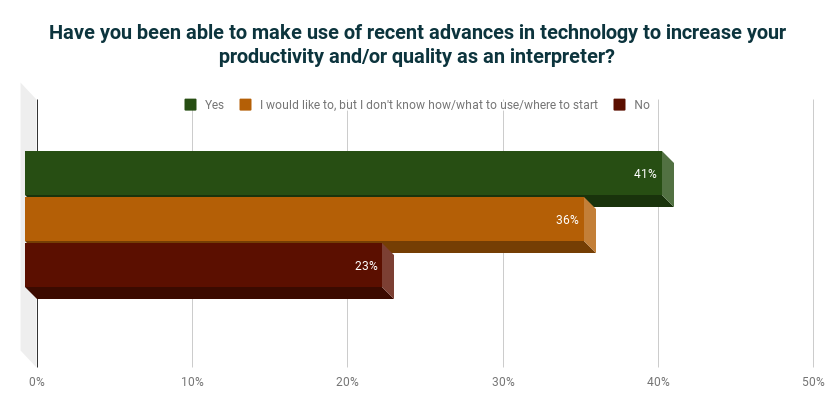
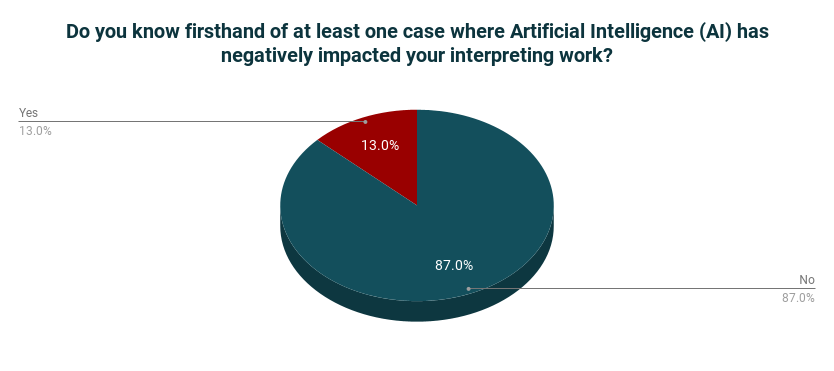
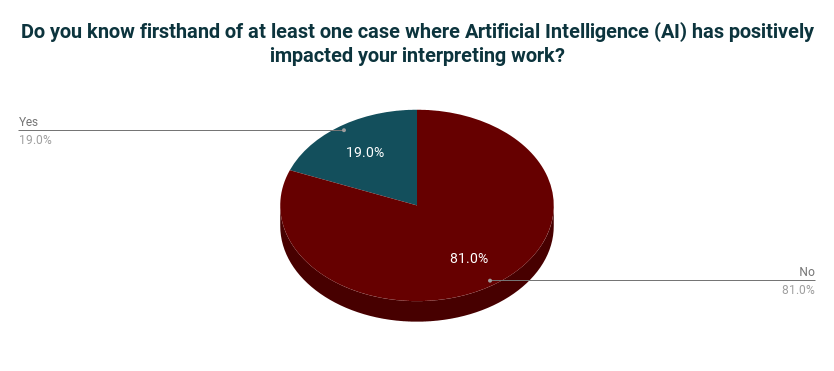
The way forward
There are all kinds of detailed advice and strategies you can follow to do more and better work. Don't rely on what you read here-- use it as a starting point to research further. Do your homework. Network-- join sites and groups where professional interpreters come together and don’t isolate yourself from what they are doing and saying. Interpreters and translators alike are exceptional at going out of their way to provide guidance and help to their colleagues.
In general, we can point to these four guidelines, which you probably already take as givens:
- Be a specialist.
- Become an expert on new technologies affecting your work. Be the type of professional a client could approach to consult on AI or other solutions.
- Incorporate new technologies and solutions into your processes, use them to make you faster, stronger, smarter, better.
- Invest in your business. Training, certification, tools, differentiation. You will never see a return on an investment you don’t make.
Be a specialist.
It’s long been known that specializing is the way to go. Specialists can do it better and faster, and they tend to earn more, so specialize.
Become an expert.
Be the kind of professional others (including your clients) can come to when they want to know what is the best solution for a particular need.
Stay on top of new advances in tech which are affecting or which may potentially affect your work. As mentioned before, language professionals are often more experienced in some of these new solutions by the time their clients start asking about them, and that is a powerful, helpful, and beneficial place to be.
Incorporate the new.
Incorporate the new technologies and other solutions that you can into your work and use them to your advantage. The days where the human language professional could simply speak out against new solutions and refuse to leverage them where they are useful are gone. Interpreters will not be replaced by AI or other tech. Interpreters who do not leverage this and other technologies will be replaced by those who do.
Invest in your business.
And invest in you, and your business. Training, certification, tools, differentiation. This last one is a bit of a no-brainer too, but it is also one which seems to be a difficult hurdle for many, especially those just starting out. But any business-runner who refuses to invest in the business they are running is destined to close that business, sooner or later. And if you are a freelancer, you are the business and the business runner.
Remember also that the language services industry has always been, and most likely will continue to be, a very "fragmented" industry. The entity exerting positive force over how you perfect your craft, work better, earn better, differentiate yourself from the competition, and run your business, especially if you are a freelancer, is always going to be you.
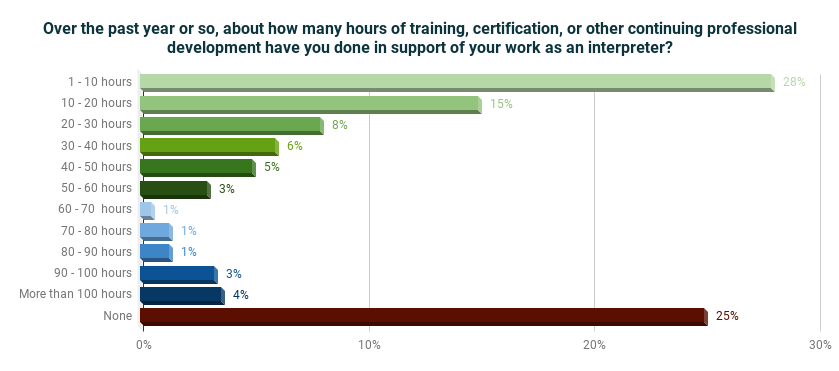
This post comes from ProZ.com industry overview: (remote) interpreters in 2023. ProZ.com industry reports can be found at https://www.proz.com/industry-report/ . ProZ.com paying members receive immediate, full access to the information available in industry reports, which are about and for freelance language professionals.


